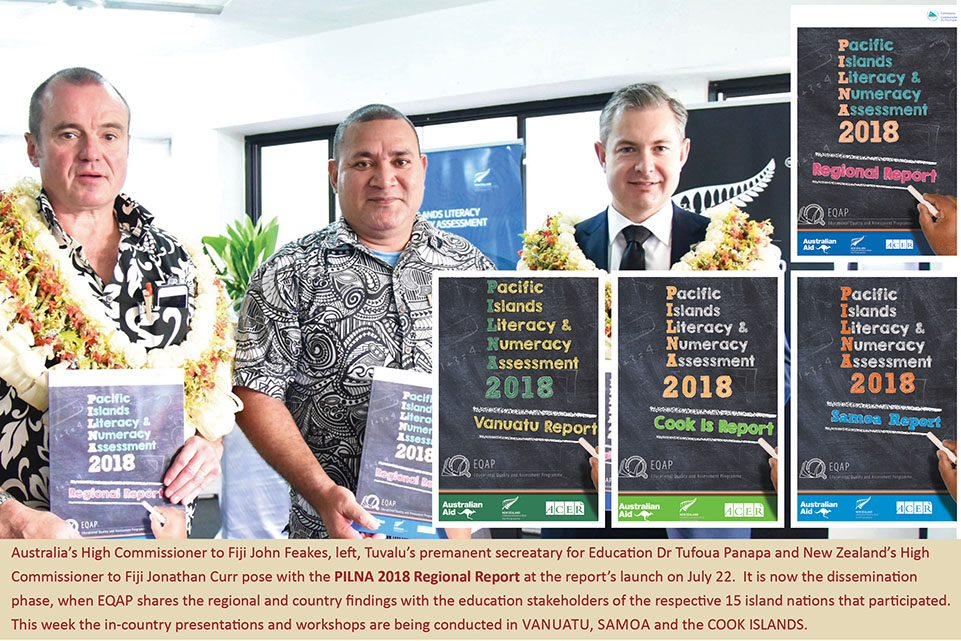
The Educational Quality and Assessment Programme (EQAP) is this week in Vanuatu, Cook Islands and Samoa to present and conduct workshops on the Pacific Islands Literacy and Numeracy Assessment (PILNA) 2018 findings.
Each country's respective PILNA report will also be explored.
These familiarisation engagements are conducted with the education systems of the other 12 island countries that participated in PILNA 2018, the region-wide longitudinal research on literacy and numeracy.
The 2018 research was led by EQAP in a partnership model that included the support of the Australian and New Zealand governments, the 15 countries' education systems and the Australian Centre for Educational Research (ACER).
These in-country engagements are a three-day exercise that begin with presentations to the education systems' top managers, then to respective curriculum and assessment divisions.
The final part of the engagement is a presentation to teachers, and workshops that will dig deeper into the findings with the aim of improving teachers' classroom assessments.
These in-person engagements are to ensure countries fully understand the trends that have persisted from the previous studies, and the new findings that are specific to the region and their own education system.
The engagements build confidence, thus encouraging the use of the research findings to make informed decisions. These will also help in the administration of an improved PILNA when the new cycle begins.